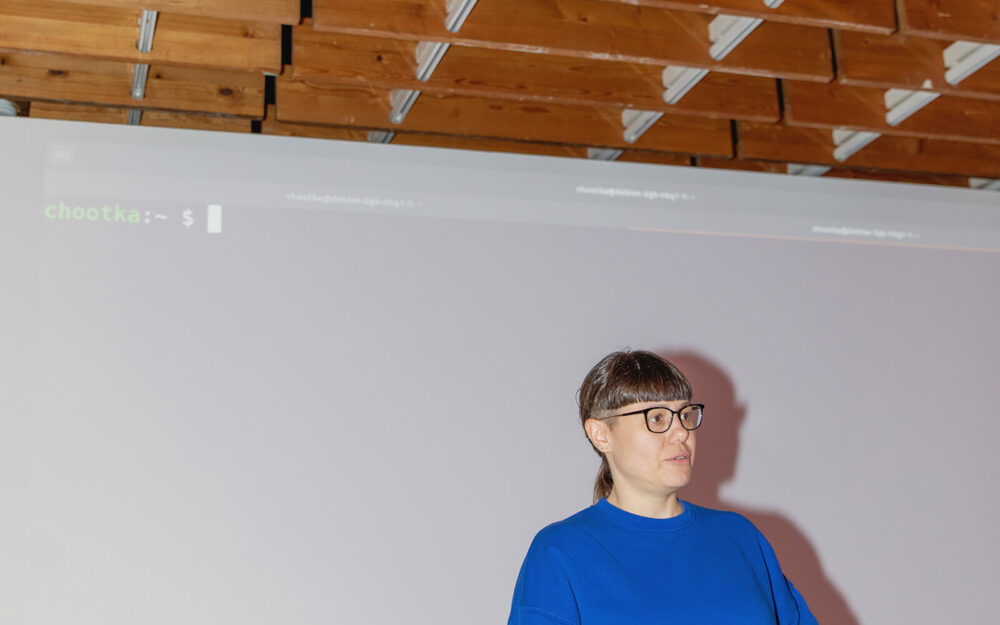AI Anarchies: Self-Hosted
Workshop
Self-Hosted
Instructor:
Sarah Grant

Profile:
Sarah Grant
Sarah Grant is an American media artist and educator based in Berlin. Her practice engages with the electromagnetic spectrum and telecommunication networks as artistic material, social habitat, and political landscape. Grant holds a Masters from New York University’s ITP program, and she is an organizer of Radical Networks, a community event exploring social justice activations and creative experiments in telecommunications.
Brief:
Learn how to ‘self-host’—install, maintain, run—your own websites and services. Using the open source YunoHost platform, Autumn School participants will learn to set up a web server (with webmail, cloud, and workflow services capable of supporting 100+ users) that can be logged into securely and remotely.
Soundbite:
“It takes just one in a community to give the gift of high-quality, low-carbon Internet infrastructure—to free yourself and others from centralised, privacy-eroding services!”
Sarah Grant, on a small investment of time that makes for a better web
Takeaway:
The infrastructure to set up and run your own server doesn’t need to be sophisticated or expensive, “you can host on a laptop or Raspberry Pi,” says Grant.
Takeaway:
Arduously jumping through hoops to solve technical problems is acquiring knowledge—which can then be passed on, creating a more inclusive, resilient, and democratic web. Most Autumn School participants arrived in the session with little or no prior knowledge about self-hosting—by the end of the workshop cheers and applause are sounding across the room as new servers go live.
Soundbite:
“75% of the Web is just WordPress—that’s the actual figure! And 99% of those sites are set up by people that don’t care about server configurations. WordPress is notorious for getting hacked, that’s why it’s good practice to change the default settings. It’s just the best way to protect that server.”
Sarah Grant, on internet vulnerabilities due to platform hegemony (and naive users)
Soundbite:
“Bots break into WordPress servers because of weak passwords. Most likely they will install their own spamming software. Why? It’s free hosting for them. The spam comes back to your identity, not theirs. They get to impersonate you and use your hosting.”
Sarah Grant, on what usually happens when a WordPress site gets hacked
Process:
After getting their bearings, the tribulations of network configuration, and emerging from troubleshooting victorious, the participants—among them software developers, media artists, activists, and social designers—are able to set up a chat server and chat with each other across federated networks: Hello World! This was met with considerable excitement.
Photography: Silke Briel
Photography: Silke Briel
Soundbite:
“If the apartment building is a computer, the different applications running on the computer are the residents and they each have their own door. And that door corresponds to a port number.”
Sarah Grant, using a real estate metaphor to explain nano port changing
Fave:
Funny moment: The website of the Hetzner server provider fired an Error 429 Message because too many people from the same IP address—the whole workshop—were suddenly trying to access the site simultaneously. “That could be seen as a feature,” quipped Grant.






